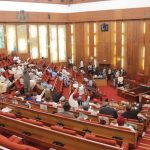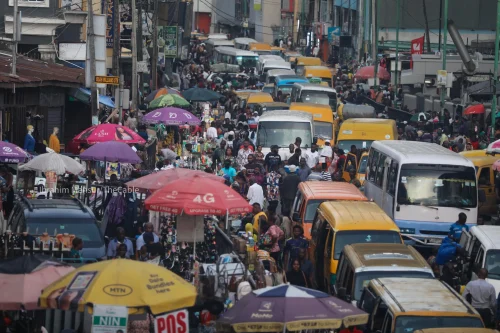Beyond closure of Nigeria’s borders

That Nigeria about two months ago closed its land borders with its neighbours including Benin, Niger and Cameroon in its efforts to stem the tide of smuggling of various imported items like rice, automobiles and small and light arms and ammunitions among many other things is no longer news.
However, this development has not gone down well with many Nigerians and the nation’s neighbours, some of whom believe that the move is ill-advised, ill-timed and should be reversed.
While those who are opposed to the continued closure of the borders are concerned about the implication of the closure on the already impoverished majority of the people within the country, as they believe that many of the people survive either through trading across or around these borders or have access to buying these ‘imported’ items which are believed to be cheaper, the government is insisting that the trading through the porous borders is not helping the nation’s economy.
While those agitating for the re-opening of the borders agree that borders closure is not new in Africa, they argue that Nigeria’s actions raises important concerns about the seriousness and prospects of regional integration in Africa.
The Federal Government on the other hand insists that the borders were closed because it wants the nation’s neighbouring countries to take Nigeria very seriously, as they have consistently taken the country for granted, and looked on Nigeria as a big brother that can be taken for a ride.
The government also insists that the land borders were closed to get the attention of neighbouring countries to take more seriously the question of policing their borders.
The government therefore argues that if Nigeria wants to grow like other prosperous countries, it must be ready to grow what it eats because, no country grows by allowing any other country to bring goods into their country indiscriminately.
While we applaud the government for the boldness in taking the decision to close Nigeria’s borders against whatever maybe the local and international protest, it must be noted that border closure cannot be a permanent feature in any country.
It is therefore our belief that while the closure subsists, it is an opportunity for the government to look inwards and work on its own to check the borders towards ensuring that it is tightened and illegal goods are not allowed anymore into the country.
It is also important to point out that whatever the government does in stopping foreign goods from illegally finding its way into the country, if local products are not available to the public at affordable cost, the closure may end up as efforts in futility.
The government must therefore put machinery in place to further assist farmers and all those involved in the process of producing rice and other stable foods so that even when the borders are reopened such imported food items will no longer be attractive to the people.
There is also a need to immediately put machinery in place to overhaul the Nigeria Customs Service to make it more effective and efficient, with ability to check all forms of smuggling of goods into the country.
The border closure is an implicit admission of the ineptitude and incompetence of Nigeria’s Customs and Immigration officers. To thwart smuggling, the country should strengthen the capacity of Customs and Immigration officers to administer the country’s trade policies and laws.
Financial autonomy: The challenge before the legislature, Judiciary
Anyone who has travelled through Nigerian land borders would be perplexed by how unprofessional the Nigerian officials are.
Without addressing the problems of an inept Customs and Immigration machinery, as well as the porosity of Nigerian borders, one would only be treating the symptoms of the disease. Solutions might include the recruitment of a new cadre of customs officers, who would be trained to combat smuggling and abhor corruption.










